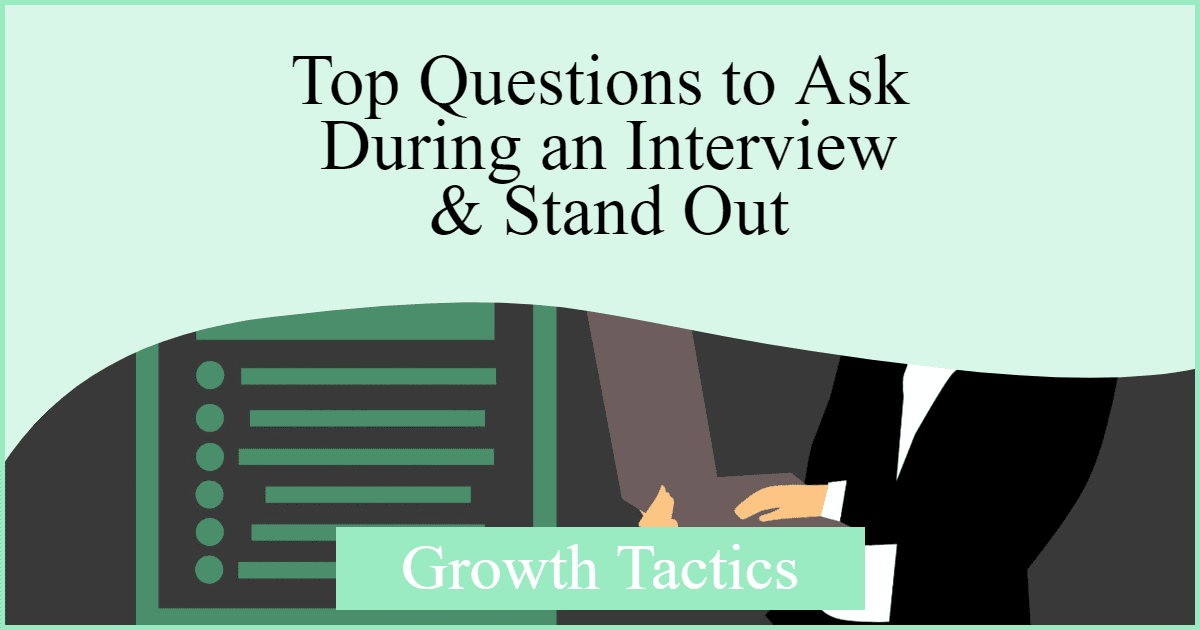A job interview is not just an opportunity for the interviewer to assess your skills and qualifications, but also a chance for you to ask questions and gather information about the company and the role. In this article, we will discuss the best questions to ask during an interview, as well as some questions to avoid.
Smart Questions to Ask Your Interviewer: Gaining Insight into the Role and Company

Company Culture: Understanding the Work Environment
- How would you describe the company culture in terms of work-life balance, collaboration, and communication?
- What are the company’s core values, and how do they influence daily operations and decision-making?
- Can you provide examples of how the company celebrates successes and addresses challenges?
- What is the typical day like for someone in this role, including key tasks, interactions with team members, and the level of autonomy?
- How does the company encourage collaboration and teamwork among employees in different departments or roles?
- Are there any unique aspects of the work environment or company culture that you believe contribute to employee satisfaction and engagement?
- How does the company support employee growth and development through training, mentorship, or other initiatives?
Job Description and Responsibilities: Clarifying Expectations
- Can you provide more details about the responsibilities of the job, including any specific projects or tasks I would be working on?
- What are the most important skills and experience required for this position, and how will they contribute to the success of the role?
- What does success look like in this role, in terms of key performance indicators or goals that need to be achieved?
- Are there any challenges or obstacles that the person in this role will need to overcome to be successful?
Team Dynamics and Working Environment: Assessing Compatibility
- Who would I be working with, and how does the team collaborate to achieve common goals?
- What is the management style of the team lead or supervisor, and how does it contribute to the team’s success?
- How does the company handle conflicts or disagreements within the team, and what steps are taken to resolve them effectively?
- What is the typical day-to-day interaction between team members, in terms of meetings, communication channels, and decision-making processes?
- How does the team celebrate successes and learn from setbacks, and how does this contribute to a positive working environment?
By asking these smart questions during your job interview, you can gain valuable insights into the company culture, job expectations, and team dynamics. This information will help you determine if the role and the company are a good fit for your career goals and preferences, and it will demonstrate your genuine interest in the position to the interviewer.
Questions About the Interview Process and Next Steps: Understanding the Timeline and Expectations
Asking questions about the interview process and next steps shows your interest in the position and helps you manage your expectations regarding the hiring timeline. Here are some questions to help you gain more insight into the process:
Next Steps in the Interview Process
- What are the next steps in the interview process, such as additional interviews, assessments, or reference checks?
- How many candidates are you considering for this role, and what is the overall timeline for the hiring process?
- Are there any additional materials or information you would like me to provide to support my application?
Timeline for Feedback and Decision Making
- When can I expect to hear back about the outcome of the interview, and will I receive feedback regardless of the decision?
- What is the typical timeframe for making a hiring decision, and how will candidates be notified of the outcome?
- If I am not selected for this role, would you be open to providing feedback on my interview performance to help me improve for future opportunities?
Expectations for the Selected Candidate
- How soon would you like the selected candidate to start, and is there any flexibility in the start date depending on the candidate’s availability?
- What is the onboarding process like for new employees, and what kind of training or support will be provided to ensure a smooth transition into the role?
- Are there any initial goals or projects that the selected candidate will be expected to tackle in the first few months of the role?
By asking these questions about the interview process and next steps, you can better understand the timeline and expectations for the hiring process. This information will help you manage your job search effectively and demonstrate your interest in the position to the interviewer.
Questions to Avoid in a Job Interview: Maintaining Professionalism and Demonstrating Preparedness
While asking thoughtful questions during a job interview is important, it’s also crucial to avoid questions that may reflect negatively on your professionalism or preparedness. Here are some examples of questions to avoid, along with explanations of why they should be avoided:
Questions about Salary, Benefits, or Vacation Time
- Avoid asking about salary, benefits, or vacation time unless the interviewer brings up the topic first. Asking about these topics too early in the interview process can make it seem like you are more focused on the compensation package than the job itself. It’s best to wait until the interviewer brings up these topics or until you receive an offer to discuss them.
Questions Focusing on Personal Needs or Preferences
- Avoid asking questions that focus solely on your personal needs or preferences, such as work hours, office location, or remote work options. These questions can make it seem like you are more concerned about your own comfort than the needs of the company or the role. Instead, focus on questions that demonstrate your interest in the company, the position, and how you can contribute to the team’s success. If these topics are important to you, consider researching the company’s policies online or waiting until you receive an offer to discuss them.
Questions that Show a Lack of Research
- Avoid asking questions that make it seem like you haven’t done your research about the company or the position. For example, don’t ask questions about basic company information, such as the size of the company, its products or services, or its mission and values. These types of questions can make it seem like you didn’t take the time to research the company before the interview, which can reflect poorly on your level of interest and preparedness. Instead, focus on asking thoughtful questions that build on the information you’ve already gathered through your research.
By avoiding these types of questions during a job interview, you can maintain a professional image and demonstrate your preparedness for the role. Focus on asking thoughtful questions that show your genuine interest in the company and the position, and use your research to guide your inquiries.
Asking Questions at the End of a Job Interview: Demonstrating Interest and Gathering Valuable Information
At the end of a job interview, taking the opportunity to ask thoughtful questions can help you gain valuable insights and demonstrate your genuine interest in the company and the position. Here are some example questions to consider asking, along with expanded explanations of their importance:
Understanding the Ideal Candidate
- What are the top three qualities you’re looking for in the person you hire for this role?
- This question can help you understand the key attributes that the employer values most in a candidate for the position. Their answer can provide insight into the company’s priorities and expectations, allowing you to assess your own alignment with these qualities and better tailor your responses or follow-up communication.
Company Growth and Future Plans
- How do you see the company growing and evolving in the next few years?
- Asking about the company’s future plans shows that you are interested in the long-term success of the organization and your potential role within it. The interviewer’s response can give you a better understanding of the company’s strategic direction and potential opportunities for growth and development within your role.
Learning More About the Team
- Can you tell me more about the team I would be working with, including their backgrounds, roles, and team dynamics?
- This question demonstrates your interest in the people you would be working with and can provide valuable information about the team’s structure, collaboration style, and overall work environment. Understanding the team dynamics can help you assess your potential fit within the group and better prepare you for a successful transition into the role.
Additional Questions to Consider
- What do you enjoy most about working for this company, and what has contributed to your success here?
- This question can help you gain insight into the interviewer’s personal experiences and perspectives on the company culture, while also providing you with a better understanding of the factors that contribute to employee satisfaction and success within the organization.
- Is there anything else you would like to know about my qualifications or experience to help you make a decision?
- Asking this question demonstrates your openness to feedback and your willingness to address any concerns the interviewer may have. Their response can provide you with an opportunity to address any potential gaps in your qualifications or clarify any misunderstandings that may have arisen during the interview.
By asking thoughtful questions at the end of a job interview, you can demonstrate your interest in the company and the position, while also gathering valuable information to help you make an informed decision about whether the role is the right fit for you.
Did you enjoy this article on questions to ask during an interview? Share and subscribe below.


